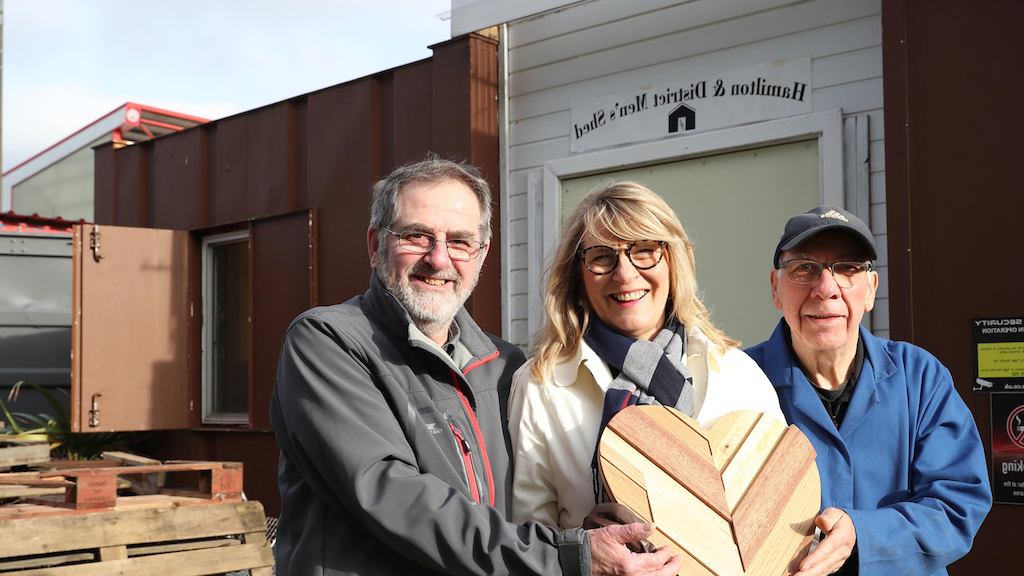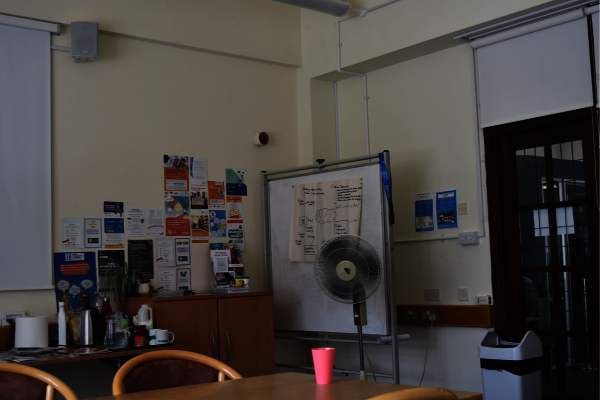Reaching out to rural areas: South Lanarkshire’s mobile Men’s Shed

The project was run by Seniors Together – a team working within South Lanarkshire Council, in partnership with a network of organisations, to achieve an improved society for older people. This case study explores the project and its benefits in accessing social support. South Lanarkshire Council used a mobile Men’s Shed to reach isolated older men in rural areas.
The need
Older men who live alone can struggle to access social support. While women in retirement are more likely to join clubs and activities for older people, men at this stage in life – particularly those who are single or recently widowed – often feel that such places are not for them.
Not getting out and about can negatively impact health and wellbeing. It can also lead to social inequalities, since important relevant information about services such as money advice, health and nutrition, housing and social care may not reach isolated people so easily. This can be even more acute in rural areas, without the community centres found in towns and cities.
This was the issue faced by South Lanarkshire, the fifth largest local authority in Scotland. Half its population lives in rural areas, and the number of older people is growing faster than the national rate. Feedback received during consultations that Seniors Together conducted with older people in the region highlighted that, in rural areas, individuals often feel they miss out when new services or initiatives are being designed and delivered.
The solution
Inspired by an idea pioneered in Australia, South Lanarkshire had decided to introduce its first Men’s Shed in the town of Hamilton.
The idea of a Men’s Shed is to create a space where men with time on their hands can gather to work on projects, have fun, share skills, build things for themselves and the local community – or just socialise with like-minded people. Men’s Sheds come in all shapes and sizes, often containing a workshop, a social area and a place to pursue hobbies. As well as tools, the Sheds are often equipped with dominoes, cards, darts, a kettle and sometimes even a barbecue.
After showing a video about Men’s Sheds at a public meeting, Seniors Together was overwhelmed with demand. But, with such a large part of the area being rural, the question was how to provide Sheds in outlying areas. The solution was to follow the example of breast screening vans.
Mobile
Seniors Together identified an old mobile library reaching the end of its useful life and, with funding from the National Lottery, refurbished it as a mobile Men’s Shed and hired a part-time worker to run it. It moved from one rural village to another, visiting 28 venues in just over two years, to give people taster sessions and raise awareness of the concept.
In some cases, the mobile shed might be outside a supermarket for only one day, and in other cases it could be set up by a leisure centre for up to 10 weeks. Before its arrival, the Shed would be publicised in local press, barber shops, bingo halls, libraries and pubs.
Since it was recognised that people would often be lacking in confidence to come on board, 60 older volunteers were recruited to provide welcome committees and encourage men in the local communities to engage. Families of men who were isolated were also encouraged to seek out information on their behalf.
The benefits
Off the back of visiting the mobile shed, men in rural areas expressed an interest in setting up their own static Sheds. The part-time development worker would meet with them weekly and support them to bring their plans to life. This would often start with a ‘Shed in a box’, a toolbox containing tea/coffee cups and games that people could use while they met and chatted about what needed to be done to develop their Shed.
Enthusiasts would be trained to help establish committees, with volunteers taking up roles such as key holders, fundraisers etc. Some were also offered training in First Aid and Health & Safety. For those who had experienced low mood due to retirement, taking on new responsibilities gave them a new purpose in life.
Norrie, one of the first Shedders in South Lanarkshire, expressed the benefits for users:
“If you’re lonely, it’s a great place to come. It’s good for your mental and your physical health.”
The Sheds were designed to contain electronic screens, enabling ‘Shedders’ without other internet access to access services and participate in surveys from the NHS and other care providers.
The Sheds have therefore helped not only to give isolated people in rural areas the chance for greater community contact, but also to reduce digital exclusion and inequality. Service providers were also able to gain valuable insight on the needs of more rural and isolated people in outlying districts.
It is estimated that 2,250 people have been involved in the mobile shed project, exceeding original expectations, and there are now 16 established permanent Men’s Sheds in South Lanarkshire.
The learning
If others were to take this approach in their community, colleagues in South Lanarkshire recommend;
- engaging with the fleet services function or similar within a local authority to explore the availability of vehicles that may be converted to a new purpose
- seeking funding, if necessary, from organisations such as the National Lottery to cover refurbishment of vehicles and a support worker
- working with partners, such as leisure centres, community centres and football clubs to set up Sheds
- avoiding giving professionals access to Shedders until their Shed is well-established, for fear of alienating potential users


